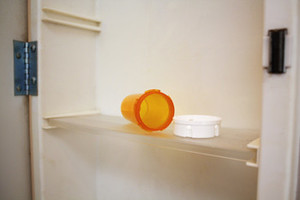As a result of recent price increases and shortages, the US generics market has come under increasing scrutiny [1]. In a recent report by Wiske et al. authors from Brown, Duke and Harvard Universities discussed ways to increase the competitiveness of the US generics market that might address these problems [2].
Two features of the US generics market were highlighted by Wiske et al. as making it more prone to price swings and shortages [3]:
- Entry is restricted by financial and time barriers.
- Barriers exist to substitution of generics.
In 2014, generics accounted for 88% of prescriptions and 28% of pharmaceutical spending in the US. It is therefore important to provide a stable supply of affordable generics. This will in turn help eliminate price swings and shortages. In order to do this Wiske et al. suggested three options to create a generics’ market that could make it more economically viable for several firms to supply each generic product on the market:
Option 1: Restrict market entry
The authors suggest that the US Food and Drug Administration (FDA) could offer a limited number of licenses to suppliers for a given generic drug. This, they say, ‘could bring greater transparency to the generics market, paradoxically attracting more manufacturers to remain as suppliers’.
Option 2: Encourage long-term contracts from wholesalers
If distributors established long-term contracts with generics’ makers this would, say the authors, ensure greater predictability in wholesale demand and supply of the drugs and encourage more suppliers to remain in the market.
Option 3: Create a futures market
Trading generics on an open market, similar to a futures market, could work in a similar way to long-term contracts with distributors. This could help generics’ makers predict demand for products, thus decreasing long-term financial volatility and creating greater transparency about drug prices.
The authors conclude that price increases and shortages are the result of the structure of the generics market in the US. They present three options designed to make excessive price increases and shortages less likely by addressing the problems associated with the current generics market economic model.
Conflict of interest
The authors of the research paper [2] declares that Dr Schulman has received honoraria and consulting fees from pharmaceutical companies. The other authors did not report any conflicts of interest. For full details of the authors’ conflicts of interest, see the research paper [2].
Editor’s comment
This article for GaBI Online is a summary of the full article published in GaBI Journal.
If you would like to receive a copy of the GaBI Journal article, please send us an email.
Readers interested to learn more about generics shortages are invited to visit www.gabi-journal.net to view the following manuscript published in GaBI Journal:
Drug shortages hit US oncologists hard
Readers interested in contributing a research or perspective paper to GaBI Journal– an independent, peer reviewed academic journal – please send us your submission here.
Related articles
Patient care threatened by cancer drug shortages
Drug shortages linked to quality control costs
References
1. GaBI Online - Generics and Biosimilars Initiative. Soaring generics prices come under increased scrutiny [www.gabionline.net]. Mol, Belgium: Pro Pharma Communications International; [cited 2016 Feb 26]. Available from: www.gabionline.net/Generics/General/Soaring-generics-prices-come-under-increased-scrutiny
2. Wiske CP, Ogbechie OA, Schulman KA. Options to promote competitive generics markets in the United States. JAMA. 2015;314(20):2129-30.
3. Derbyshire M. Promoting a competitive generics market in the US. Generics and Biosimilars Initiative Journal (GaBI Journal). 2016;5(1):45. doi:10.5639/gabij.2016.0501.011
Permission granted to reproduce for personal and non-commercial use only. All other reproduction, copy or reprinting of all or part of any ‘Content’ found on this website is strictly prohibited without the prior consent of the publisher. Contact the publisher to obtain permission before redistributing.
Copyright – Unless otherwise stated all contents of this website are © 2016 Pro Pharma Communications International. All Rights Reserved.








 0
0











Post your comment